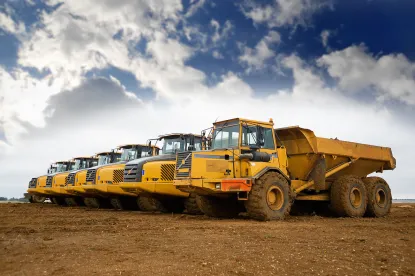Equipment manufacturers are generally well aware of the onerous and often expensive equipment repurchase obligations they incur when terminating or non-renewing a dealer. But at least these repurchase obligations make some logical sense: the manufacturer made the decision to terminate or non-renew, so the dealer ought not be left holding the bag in the form of unsold inventory.
Less well known (and more logically tenuous) are equipment repurchase obligations that are triggered when dealers unilaterally terminate their agreements with manufacturers. In that situation, an equipment manufacturer would be justifiably surprised when it’s saddled with a six- or seven-figure equipment repurchase bill for a termination it neither wanted nor anticipated. Late last month the Iowa General Assembly passed H.B. 556, a bill that could lay precisely this trap for the unwary equipment manufacturer.
The Iowa bill proposes an amendment to Iowa’s agricultural and industrial equipment dealer statute, which will now read: “If a dealership agreement is terminated by cancellation or nonrenewal by either the dealer or supplier, the supplier must repurchase equipment and parts in the dealer’s inventory” according to certain parameters specifically set forth in the statute. Importantly, this type of protectionist language is not unique to Iowa. Laws with similar protections already exist in Alabama (Ala. Code § 8-21B-12), Florida (Fla. Stat. §§ 686.606; 686.407), Maine (Me. Stat. § 1288), and Texas (Tex. Bus &. Comm. Code § 57.353(a)). Each of these statutes – as well as Iowa’s agricultural and industrial equipment dealer statute – also have anti-waiver provisions that prohibit equipment manufacturers from contracting to avoid the repurchase obligations.
Unfortunately, these anti-waiver provisions limit a manufacturer’s ability to mitigate risk associated with repurchase obligations triggered after a dealer terminates its agreement. Nevertheless, a manufacturer can take certain proactive steps to limit its potential exposure under these provisions. For example:
-
Regularly auditing dealer inventory to ensure excess, unneeded inventory does not build up at an underperforming dealer;
-
Proactively work with all dealers to market and sell aging inventory, regardless of whether you have received notice of the dealer’s termination or non-renewal; or
-
After receiving notice of a dealer’s decision to terminate or non-renew, consider permitting the dealer the limited right to continue to sell its existing inventory to avoid large repurchase obligations.
Iowa’s H.B. 556 now heads to the Iowa Senate for revision or ratification. Agricultural or industrial equipment manufacturers with dealer networks in Iowa should continue to monitor the progress of this bill and consider proactively mitigating risk with the above steps.





 />i
/>i

